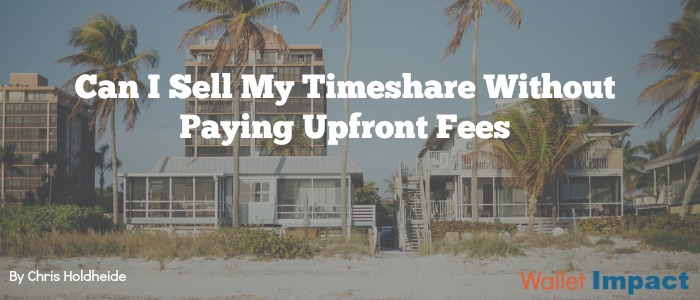Are Timeshares Worth It? 10 Hard Truths You Should Consider
If you’re considering buying a timeshare, stop! You may be attending one of those meetings where they wine and dine you and offer you a free trip, but before you do, you need to read this article.
For 95% of Americans, timeshares are not worth it due to poor resale value, escalating maintenance fees, and limited flexibility that makes them a depreciating liability rather than a smart vacation investment. You’ll get better value and complete freedom by saving that same money for traditional vacations through hotels, vacation rentals, or loyalty programs.
I once bought a timeshare, and I learned some hard lessons from this. Thinking they would be a great investment and allow me to travel the world. How wrong I was.
In this article, I’m going to share the 10 hard truths about timeshares you should know before you buy.
1. What Exactly Is a Timeshare, and Why the Confusion?
Let’s start with the basics because timeshare terminology can be deliberately confusing. A timeshare is essentially shared ownership of a vacation property where you purchase the right to use it for a specific period each year—typically one week.
But here’s where it gets tricky. Modern vacation ownership comes in several flavors:
Fixed-Week Timeshares: You own week 23 every year at the same resort. Period. No flexibility, no substitutions.
Floating-Week Systems: You can choose any available week during your designated season. Sounds better, right? Just try booking Christmas week in Aspen.
Points-Based Timeshares: The new hotness. You buy points annually and spend them on various resorts, room sizes, and dates. Think of it as vacation currency that loses value faster than crypto during a bear market.
Fractional Ownership: The luxury cousin, where you might own 1/4 or 1/8 of a high-end property. More expensive but actually resembles real ownership.
The industry loves to rebrand itself every few years—”vacation ownership,” “vacation clubs,” “travel memberships”—but don’t be fooled. If you’re paying upfront for future vacation rights, it’s still a timeshare.
Why This Matters: Understanding exactly what you’re buying is crucial because each type has different exit strategies, resale values, and ongoing obligations. Don’t let fancy terminology cloud your judgment.
2. The Real Cost Breakdown: It’s Not Just the Purchase Price
Here’s where timeshare salespeople become masters of misdirection. They’ll focus on that seemingly reasonable purchase price while glossing over the timeshare cost that matters: your total lifetime financial commitment.
Let me break down what you’re signing up for:
| Cost Component | Annual Range | 20-Year Total |
|---|---|---|
| Maintenance Fees | $800 – $1,500+ | $16,000 – $30,000+ |
| Special Assessments | $0 – $2,000+ | $0 – $40,000+ |
| Exchange Fees | $150 – $300 | $3,000 – $6,000 |
| Property Taxes | $100 – $500 | $2,000 – $10,000 |
Maintenance Fees: These aren’t optional. They cover resort upkeep, staff salaries, and management company profits. The kicker? They increase annually, often outpacing inflation. I’ve seen fees double in just ten years.
Special Assessments: When the resort needs a new roof, pool renovation, or hurricane damage repairs, guess who pays? These surprise bills can range from hundreds to thousands of dollars.
High Interest Rates: If you have to take the timeshare on loan through the resort, watch out. Interest rates run very high with these loans. When I bought my timeshare, I got the loan papers a few weeks after I got back, and had a 17% interest rate. Ouch!
The Hidden Truth: Even after you’ve paid off your initial purchase, you’re still on the hook for these annual fees. Forever. Even if you never use your timeshare, even if the resort becomes a dump, even if you move to Antarctica.
A typical American timeshare owner pays $15,000-$25,000 over two decades in maintenance fees alone. Add the purchase price, financing costs, and exchange fees, and you’re looking at $40,000-$60,000 for what amounts to 20 weeks of vacation over 20 years.
3. Investment Myth vs. Reality: The Depreciation Truth Bomb
Let’s address the elephant in the room: timeshare investment potential. Spoiler alert—it’s not an investment; it’s a rapidly depreciating consumer product. When I bought my timeshare, I thought I was buying a piece of land.
Nope. You’re buying time at a resort that does not grow in value.
The Cold, Hard Numbers:
- New timeshares lose 60-80% of their value the moment you sign the contract
- Resale market prices average 10-30% of the original purchase price
- Less than 2% of timeshares ever appreciate, and I’m being generous
Think about it logically. When you buy a timeshare, you’re not acquiring real estate—you’re purchasing a vacation product with built-in obsolescence. The resort has already sold that same week to multiple people over the property’s lifetime. You’re essentially buying a very expensive, very limited vacation package.
The Resale Reality Check: I recently checked timeshare resale websites. Properties originally sold for $25,000-$40,000 were listed for $1,000-$5,000. Many had been on the market for years with no takers.
I tried selling my timeshare on a few of these sites and got nowhere. These are almost a bigger scam than the timeshares themselves.
Why the Terrible Resale Value?
- Oversupplied market (more sellers than buyers)
- Ongoing maintenance fee obligations scare off buyers
- Newer, more flexible vacation options are available
- Resort developers compete directly with the resale market
Bottom Line: If you’re considering a timeshare as any form of investment, stop right there. You’d get better returns stuffing cash in a mattress.
4. The Pros: When Timeshares Make Sense
Alright, I’ve been pretty harsh so far, but fairness demands I acknowledge when timeshare pros and cons tip toward the pro side. For a very specific type of person, timeshares can work.
You Might Benefit If:
Creature of Habit: You vacation the same week every year, same resort, same room type. You value predictability over adventure and don’t mind being locked into this pattern for decades.
Large Family Dynamics: Standard hotel rooms don’t cut it for your crew. Timeshare units offer full kitchens, multiple bedrooms, and living spaces that can house the extended family reunion without breaking the bank on multiple hotel rooms.
Inflation Hedge (Sort Of): Your maintenance fees will increase, but they might rise more slowly than hotel rates. This is a big “might” and depends on responsible resort management.
Built-In Vacation Discipline: Some people need forced savings and predetermined vacation plans. The financial commitment ensures you take those vacations instead of perpetually postponing them.
Exchange Networks: Quality timeshares in systems like RCI or Interval International can unlock vacation variety. I know owners who’ve successfully traded their Orlando week for stays in London, Hawaii, or Cabo.
The Sweet Spot: Families who vacation annually, prefer resort amenities, stay a full week, and travel with multiple generations sometimes find timeshares cost-effective. The key word is sometimes.
5. The Cons: Why Most Americans Should Run
Now for the reality check. The timeshare pros and cons heavily favor the cons for most Americans. Here’s why:
Flexibility Killer: Life changes. Your dream destination at 30 might bore you at 50. That fixed week might conflict with kids’ school schedules, job demands, or health issues. Timeshares don’t care about your evolving needs.
Maintenance Fee Spiral: These fees increase annually, often dramatically. I’ve seen $500 annual fees become $1,500 over a decade. Resort management companies have zero incentive to control costs since you’re legally obligated to pay.
Exit Difficulty: Getting out of a timeshare makes escaping Alcatraz look easy. You can’t just stop paying—your credit gets destroyed, and they’ll pursue collections aggressively.
Limited Booking Options: Try booking that Hawaii timeshare for Christmas week. Good luck. Popular times and destinations book up immediately, often going to existing owners with seniority or those willing to pay premium fees.
Obsolescence Risk: Resort age, management changes, and your once-pristine property can become dated or poorly maintained. You’re stuck with the consequences for decades.
Opportunity Cost: That $20,000 timeshare purchase plus $1,000 annual fees could fund some incredible vacation experiences. Two decades of that money could finance luxury trips worldwide without any restrictions.
6. Points vs. Fixed-Week: The Modern Timeshare Showdown
The timeshare industry has largely shifted toward points-based timeshares, and salespeople present this as revolutionary innovation. Let me decode the reality.
Points-Based Systems:
- More flexibility in dates and destinations
- Different room sizes cost different point amounts
- Points often expire if unused
- Complex redemption charts that change frequently
Fixed-Week Traditional:
- You own a specific week at a specific resort
- Simpler to understand and budget
- Easier to trade through exchange companies
- No point expiration concerns
The Flexibility Illusion: Points sound more flexible, but practical flexibility is limited. Premium destinations and dates require significantly more points. Beach resorts during summer? Double points. Mountain resorts during ski season? Triple points.
Real-World Example: A Marriott Vacation Club owner told me their 3,500 annual points book a studio in Orlando during low season, OR a studio in Maui for three days during high season. That’s not flexibility—that’s mathematical manipulation.
The Winner: Neither system solves the fundamental timeshare problems of depreciation, increasing fees, and exit difficulties. Points-based systems often add complexity without delivering promised flexibility.
7. The Exit Strategy Nightmare: Getting Out When Reality Hits
This might be the most important section for anyone considering timeshare contract cancellation. Getting out of a timeshare is notoriously difficult, expensive, and sometimes impossible through legitimate means.
Legal Exit Options:
Rescission Period: Most states provide a 3-10 day “cooling off” period after purchase. If you’re reading this within days of signing, this might be your golden ticket out.
Deed Back Programs: Some resorts accept returned ownership, but they’re selective and often require paid-up maintenance fees. This is how I was able to get rid of my timeshare. I was able to get ten cents on the dollar back for my timeshare, but at least I was rid of it.
Resale Market: As mentioned, expect to lose 70-90% of your purchase price. Many owners eventually give their timeshares away just to escape ongoing fees. I personally never had any luck with these programs.
The Scam Alert: The desperation of trapped owners has created a cottage industry of timeshare exit companies. Many are outright scams charging $5,000-$15,000 upfront with no guarantees. Legitimate attorneys typically charge similar amounts with no promise of success.
Why Exits Are So Difficult: Timeshare contracts are specifically designed to be permanent obligations. The language is ironclad, penalties are severe, and resort developers have teams of lawyers protecting their recurring revenue stream.
Before You Sign: Understand that this is likely a lifetime commitment. If you’re not 100% certain you want to vacation at the same resort for the next 20+ years, walk away.
8. Alternatives That Make Financial Sense
Instead of asking “are timeshares worth it,” consider these timeshare alternatives that offer more flexibility and better financial outcomes:
Vacation Rental Platforms:
- Airbnb and VRBO offer entire homes worldwide
- Book when you want, where you want
- No long-term commitments or maintenance fees
- Often cheaper than timeshare costs when you factor in all fees
Hotel Loyalty Programs:
- Marriott Bonvoy, Hilton Honors, and IHG Rewards offer substantial benefits
- Free nights, upgrades, and exclusive perks
- No upfront costs or ongoing obligations
- Flexibility to earn and redeem points globally
Vacation Savings Accounts:
- Automatically save $200-$500 monthly in a dedicated travel fund
- Earn interest while building vacation budgets
- Complete flexibility in timing and destinations
- Money remains yours if plans change
Fractional Ownership (High-End):
- True real estate ownership (usually 1/4 to 1/8 share)
- Potential for appreciation
- Higher-quality properties and services
- Significant upfront investment ($100K+)
The Math: A family spending $1,000 monthly on maintenance fees and loan payments could fund incredible annual vacations instead. That’s $12,000 yearly for luxury hotels, unique experiences, and complete flexibility.
9. Red Flags: Spotting Timeshare Sales Tactics
Timeshare scams to avoid aren’t just about outright fraud—they’re about high-pressure sales tactics designed to override rational decision-making. Here are the warning signs:
The Urgency Theater:
- “This price is only good today.”
- “We only have one unit left at this price.”
- “My manager will fire me if I don’t sell this today.”
Reality Check: Timeshare inventory is manufactured scarcity. They’ll have the same “deal” tomorrow, next week, and next month.
This is how the timeshare sales process goes. Once you’ve read this, you’ll be able to spot the signs and avoid the hype.
The Escalation Game:
- Start with a low-ball offer
- Bring in multiple “managers” with better deals
- Create false competition with other potential buyers
Free Vacation Bait:
- “Free” resort stays requiring timeshare presentations
- Hidden restrictions make free trips nearly unusable
- Hard-sell pressure during what should be relaxing vacation time
Mathematical Manipulation:
- Focus on monthly payments instead of total cost
- Compare timeshare costs to luxury hotel rates (not typical vacation spending)
- Ignore maintenance fee increases and total lifetime costs
The “Investment” Lie:
- Promise appreciation that never materializes
- Suggest rental income potential (usually prohibited or unprofitable)
- Compare to real estate without acknowledging fundamental differences
Protection Strategy: Never make decisions during the presentation. Take all materials home, research independently, and consult with family or financial advisors who aren’t emotionally invested in your vacation dreams.
10. The Verdict: Making the Smart Choice
After examining every angle, here’s my honest assessment of timeshare value:
For 95% of Americans, timeshares are not worth it.
The financial mathematics simply doesn’t work. Between purchase costs, financing charges, annual maintenance fees, special assessments, and exchange fees, you’ll spend $40,000-$80,000 over two decades for vacation experiences you could get more flexibly and often more cheaply through traditional booking methods.
The 5% Exception:
- Families who vacation religiously every year at the same destination
- Multiple generations who plan group vacations annually
- People who genuinely prefer resort amenities over hotels or rentals
- Those with significant disposable income who view it as an entertainment expense, not an investment
Better Alternatives for Most People:
The Travel Fund Strategy: Instead of timeshare payments, automatically transfer $300-$500 monthly into a dedicated vacation savings account. After just two years, you’ll have $7,200-$12,000 for an incredible trip with complete flexibility.
Hotel Loyalty Maximization: Choose one or two hotel chains, earn points through credit cards and stays, then enjoy free nights and upgrades. Many programs offer timeshare-like benefits without long-term commitments.
Vacation Rental Mastery: Use platforms like Airbnb and VRBO to rent entire homes, often with kitchens and multiple bedrooms, at destinations worldwide. You’ll pay for actual usage without ongoing obligations.
The Bottom Line Decision Framework:
Ask yourself these questions:
- Am I comfortable with a 20+ year financial commitment?
- Do I vacation the same week annually and prefer the same destination?
- Can I afford maintenance fees that will likely double over time?
- Am I prepared to lose 70-90% of my purchase price if I need to sell?
- Do I understand that this is an expense, not an investment?
If you answered “no” to any of these questions, skip the timeshare and explore alternatives.
Conclusion: Your Money, Your Choice, Your Freedom
The timeshare industry thrives on dreams, emotion, and the American desire for predictable luxury. But the best vacation investment you can make is maintaining your financial flexibility and freedom to choose.
I’ve seen too many people trapped in timeshare contracts they regret, paying thousands annually for vacations they no longer want, to destinations they’ve outgrown, during weeks that no longer work for their schedules. The promise of locked-in vacation costs becomes a lifetime sentence of escalating fees and diminished choices.
Your move: Before making any timeshare decision, spend that money on an amazing vacation using traditional booking methods. Experience the freedom of choice, the flexibility of changing plans, and the satisfaction of knowing your vacation dollars are buying experiences, not obligations.
The vacation industry has evolved dramatically since timeshares were invented. Today’s travelers have more options, better prices, and greater flexibility than ever before. Don’t let slick salespeople convince you to trade that freedom for the illusion of savings and the reality of lifetime commitments.




I like what you said about how although there are benefits to owning a timeshare that there are also a lot of downsides you may not know about before buying them. Someone recently told me that they had enjoyed their timeshare for a while, but it was starting to be more of a burden than they wanted to be involved for. I’m glad you’re informing people beforehand about what will happen to them, good and bad. Sometimes, though, things turn out differently than expected anyway. If I was in that situation I would definitely want to seek out a professional to help with the cancellation process because they would know the legal ins and outs and find the least painful solution.
Right on Daniel, I have a family member who owns a timeshare and they love them which is perfectly fine. They did their research and fully understand the good and bad that go along with them. It’s when you don’t take the time to do that research and end up buying something you shouldn’t have. Anyways thangs for sharing.